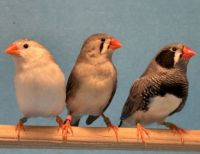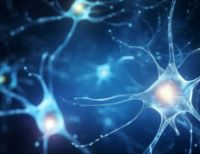A McGill University-led research team working in collaboration with a French team (CNRS, INSERM and Sorbonne university) believes it has identified both the neurological mechanism underlying anorexia nervosa as well as a possible cure.
The international team’s findings, published this week in Nature Communications, have the potential to improve the lives of millions of people around the world, mostly women, who suffer from the common eating disorder, which has the highest mortality rate of any psychiatric disease.
Working with mice, the researchers discovered that a deficit in the acetylcholine, a neurotransmitter in an area of the brain called the striatum, which is associated with the reward system, can lead to excessive habit formation and precipitate the compulsive self-starvation seen in people who suffer from anorexia nervosa.
McGill Psychiatry professor Dr Salah El Mestikawy, the senior author on the paper and a researcher at the Douglas Research Centre, said the research team decided to see whether using donepezil, a medication which is known to increase the presence of acetylcholine in the brain, could have an effect on these compulsive self-destructive behaviours.
“We found that it fully reversed the anorexia-like behaviour in mice, and we believe that it could potentially offer the first mechanism-based treatment of anorexia nervosa. In fact, we are already seeing its effects on some patients with the disease.”
Improving health of anorexia patients treated with donepezil
Ongoing independent studies in Toronto and Montreal, led by Dr. Leora Pinhas, an independent psychiatrist, are showing positive results for 10 patients with severe anorexia nervosa who are being treated with low doses of donepezil. Three of the patients are in full remission and the other seven patients show a marked improvement in the disease.
Further double-blind clinical trials, comparing the results of those taking a placebo with those of taking the medication, are due to take place this year at Columbia University, Denver University, and the Hôpital Sainte-Anne in Paris.
Dr. El Mestikawy cautions, however, that between clinical trials and government approval it may take several years before a new drug can be used to treat anorexic patients.
Possible effects on other diseases involving compulsive behaviours
El Mestikawy said donepezil is a drug with many gastrointestinal and muscular side effects. As a result, the McGill researchers are working with the French team, led by Stéphanie Daumas and Nicolas Pietrancosta at Sorbonne Université, who co-authored the study, to develop a novel compound with fewer problems.
“We also suspect that other compulsive pathologies such as obsessive-compulsive disorders (OCD) and addictions can also be improved by donepezil, so we are actively looking for collaboration with other psychiatrist around the world to explore the possibilities,” said El Mestikawy.
The study:
“The human VGLUT3-pT8I mutation elicits uneven striatal DA signaling, food or drug maladaptive consumption in male mice" by Mathieu Favier et al was published in Nature Communications
















